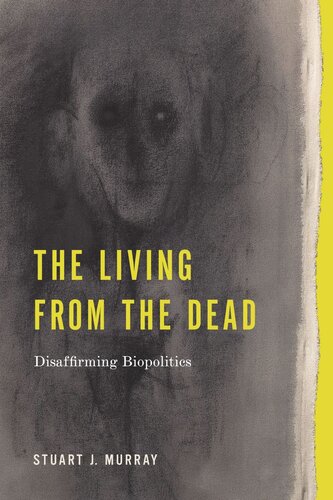

Most ebook files are in PDF format, so you can easily read them using various software such as Foxit Reader or directly on the Google Chrome browser.
Some ebook files are released by publishers in other formats such as .awz, .mobi, .epub, .fb2, etc. You may need to install specific software to read these formats on mobile/PC, such as Calibre.
Please read the tutorial at this link: https://ebookbell.com/faq
We offer FREE conversion to the popular formats you request; however, this may take some time. Therefore, right after payment, please email us, and we will try to provide the service as quickly as possible.
For some exceptional file formats or broken links (if any), please refrain from opening any disputes. Instead, email us first, and we will try to assist within a maximum of 6 hours.
EbookBell Team

0.0
0 reviewsIn a society that aims above all to safeguard life, how might we reckon with ethical responsibility when we are complicit in sacrificial economies that produce and tolerate death as a necessity of life?
Arguing that biopower can be fully exposed only through an analysis of those whom society has “let die,” Stuart J. Murray employs a series of transdisciplinary case studies to uncover the structural and rhetorical conditions through which biopower works. These case studies include the concept of “sacrifice” in the “war” against COVID-19, where emergent cultures of pandemic “resistance” are explored alongside suicide bombings and military suicides; the California mass hunger strikes of 2013; legal cases involving “preventable” and “untimely” childhood deaths, exposing the irreconcilable claims of anti-vaxxers and Indigenous peoples; and the videorecording of the death of a disabled Black man. Murray demonstrates that active resistance to biopower inevitably reproduces tropes of “making live” and “letting die.” His counter to this fact is a critical stance of disaffirmation, one in which death disrupts the politics of life itself.
A philosophically nuanced critique of biopower, The Living from the Dead is a meditation on life, death, power, language, and control in the twenty-first century. It will appeal to students and scholars of rhetoric, philosophy, and critical theory.